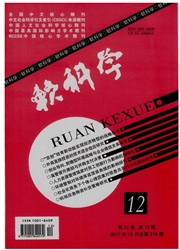

 中文摘要:
中文摘要:
基于中国1980~2013年钢铁行业数据,利用超越对数成本函数构建要素成本份额方程,运用动态最小二乘法对模型进行修正,利用似不相关回归对钢铁行业生产要素间的替代关系进行测度,并通过引入价格的非对称性来研究回弹效应。结果表明:钢铁行业的能源和资本自价格弹性均为负;资本和能源的绝对替代弹性和相对替代弹性均为正。能源对资本的绝对替代弹性大于资本对能源的绝对替代弹性,但资本对能源的相对替代弹性自2000年以后逐渐占优于能源对资本的相对替代弹性;钢铁行业的回弹效应高达95.85%,由能源效率提高而节约的能源基本上被回弹效应所抵消。
 英文摘要:
英文摘要:
Based on the data of Chinese iron and steel industry from 1980 to 2013, this paper uses translog cost function to construct the factor cost share equations, and modifies the model by the dynamic least squares method to measure the substi- tution between input factors of the steel industry and rebound effect by price asymmetry. The results are as follows: self- price elasticity of energy for capital is negative; absolute substitution elasticity and relative substitution elasticity of capital for energy is positive. The absolute substitution elasticity of energy for capital is larger than that of capital for energy, but the relative substitution elasticity of capital for energy has been larger than that of energy for capital since 2000. The re- bound effect in Chinese iron and steel industry is 95.85% , which shows a high level of rebound effect and means that ener- gy saved by energy efficiency improvement is mostly offset by rebound effect.
 同期刊论文项目
同期刊论文项目
 同项目期刊论文
同项目期刊论文
 期刊信息
期刊信息
